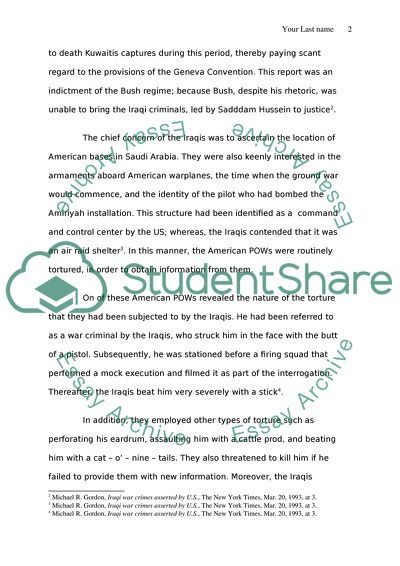Cite this document
(Prisoners Of War, Civilians, And Diplomats In The Gulf Crisis Research Paper, n.d.)
Prisoners Of War, Civilians, And Diplomats In The Gulf Crisis Research Paper. Retrieved from https://studentshare.org/politics/1722350-kuwaiti-prisoners-of-war-and-the-application-of-international-humanitarian-law
Prisoners Of War, Civilians, And Diplomats In The Gulf Crisis Research Paper. Retrieved from https://studentshare.org/politics/1722350-kuwaiti-prisoners-of-war-and-the-application-of-international-humanitarian-law
(Prisoners Of War, Civilians, And Diplomats In The Gulf Crisis Research Paper)
Prisoners Of War, Civilians, And Diplomats In The Gulf Crisis Research Paper. https://studentshare.org/politics/1722350-kuwaiti-prisoners-of-war-and-the-application-of-international-humanitarian-law.
Prisoners Of War, Civilians, And Diplomats In The Gulf Crisis Research Paper. https://studentshare.org/politics/1722350-kuwaiti-prisoners-of-war-and-the-application-of-international-humanitarian-law.
“Prisoners Of War, Civilians, And Diplomats In The Gulf Crisis Research Paper”, n.d. https://studentshare.org/politics/1722350-kuwaiti-prisoners-of-war-and-the-application-of-international-humanitarian-law.


